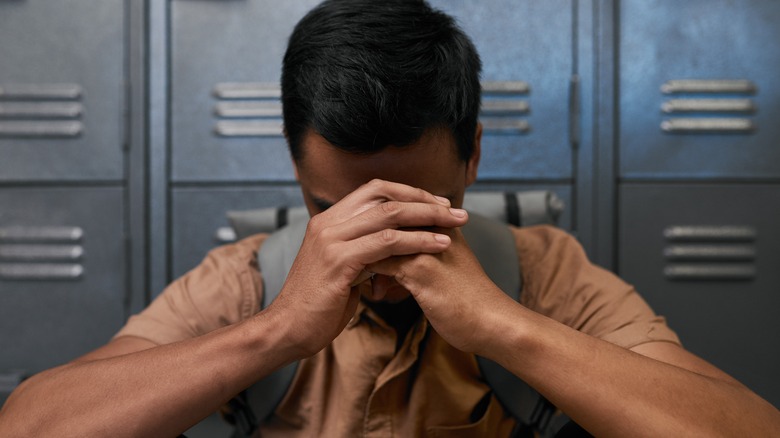Study Reveals How Microaggressions Can Affect Your Health
Microaggressions are everyday verbal and nonverbal slights and insults that communicate hostile or derogatory messages to people from marginalized communities. Coined by Harvard University psychiatrist Dr. Chester Pierce in the 1970s, the term microaggression was originally used to describe derogatory insults and dismissals against Black Americans. According to the Cleveland Clinic, Dr. Pierce believed these slights could have a significant impact on both mental and physical health.
Since then, however, the definition of microaggression has been expanded to include people from other marginalized groups, including LGBTQ people, women, religious minorities, people with disabilities, and other non-Black people of color. Whether intentional or not, microaggressions are often rooted in implicit bias — a term used to describe unconscious attitudes and beliefs based on stereotypes. However, they can also be the result of conscious bias, which the self is completely aware of.
As it turns out, there are 3 different types of microaggressions: microassaults, microinvalidations, and microinsults. Microassaults are deliberate and intentional slights that are meant to hurt and disrespect someone based on their identity, while microinsults are rude and insensitive comments based on prejudiced stereotypes. Microinvalidations, on the other hand, are comments that seek to dismiss and minimize the lived experiences of marginalized people.
Microaggressions can cause stress
According to MedicalNewsToday, all of these types of microaggressions can negatively impact one's health over time. That's because microaggressions often cause stress, which can trigger a physiological response. Research has shown that social stressors, like discrimination, can potentially elevate heart and blood pressure and even disrupt sleep. Furthermore, microaggressions and discrimination are also associated with an increased risk of mental illness.
According to a 2009 meta-analysis published in the Psychological Bulletin, discrimination may increase the likelihood of engaging in high-risk behaviors, like smoking, excessive drinking, and overeating, all of which may be used as a coping mechanism for stress. A 2015 study published in the journal Suicide and Life-Threatening Behavior found that college students from racial and ethnic minorities who frequently experienced microaggressions had a higher incidence of suicidal thoughts. These findings support the results of previous research, which found a higher risk of depression and anxiety among adults who experienced microaggressions on the basis of race.


